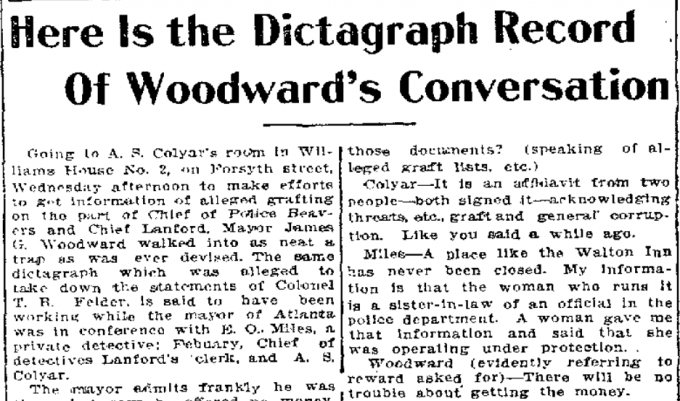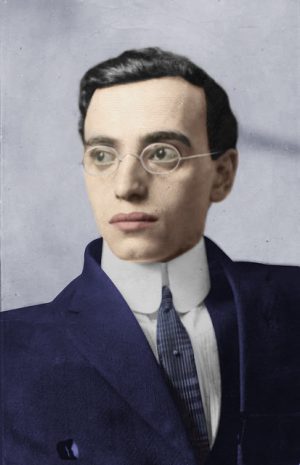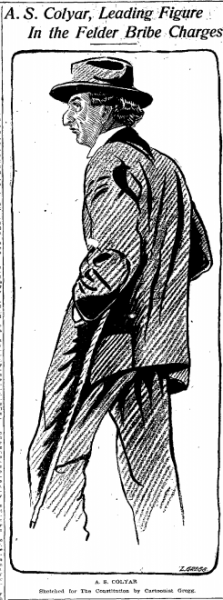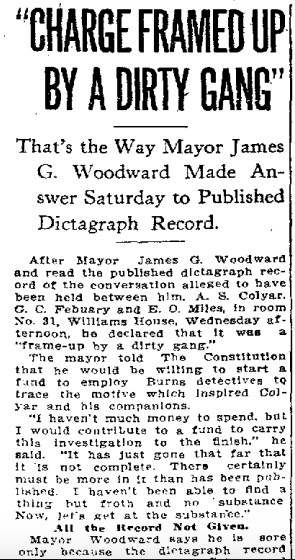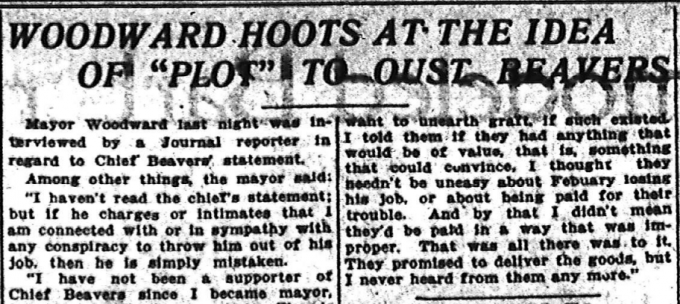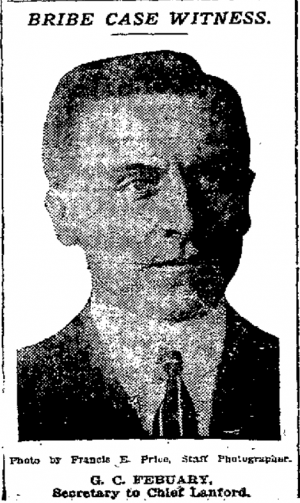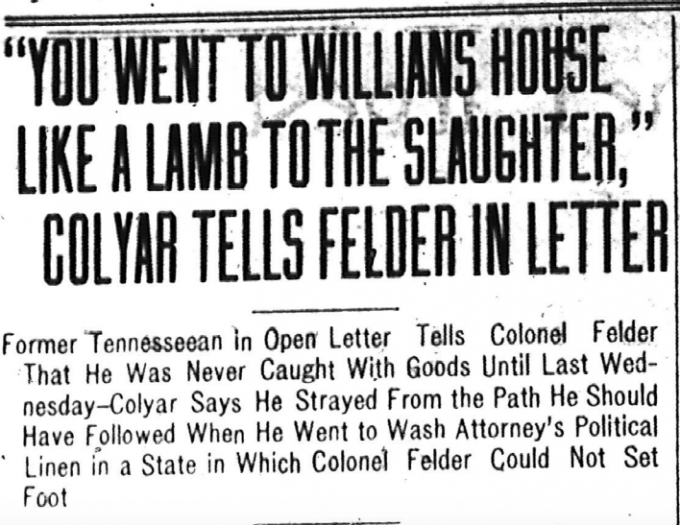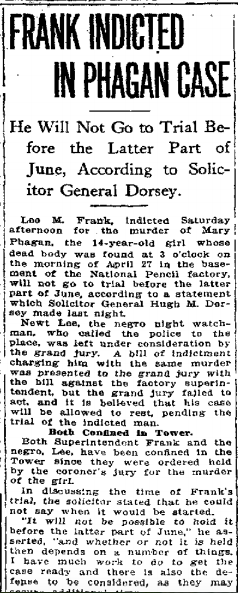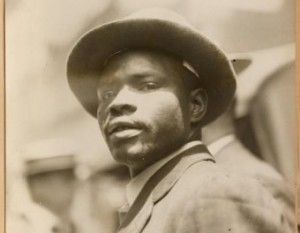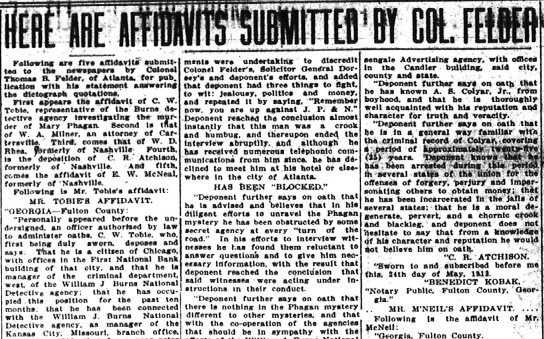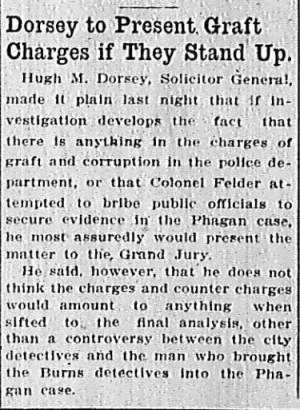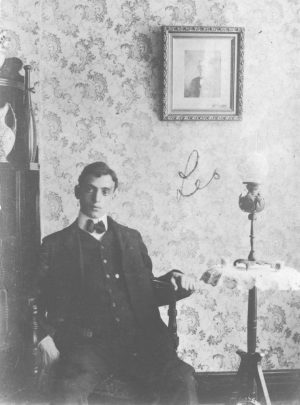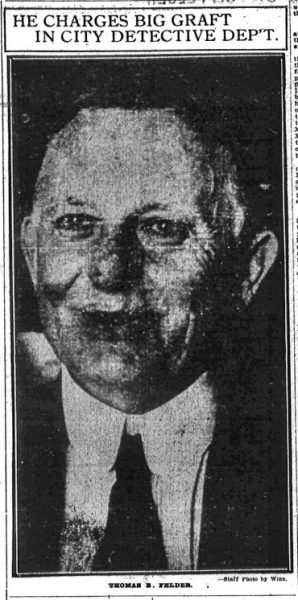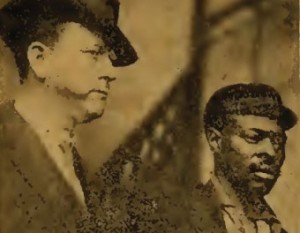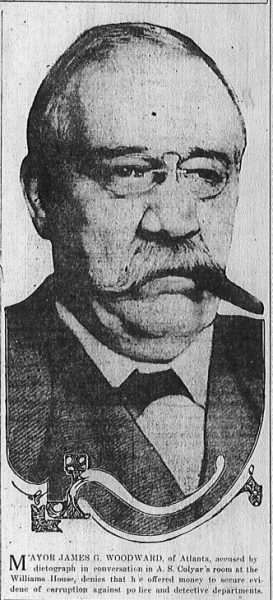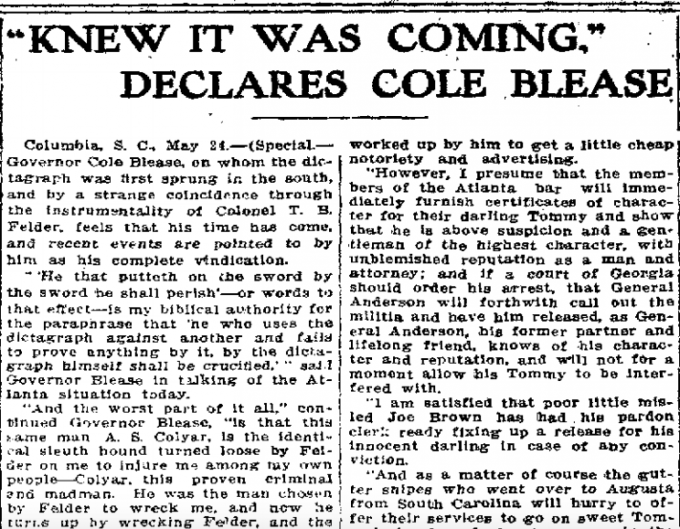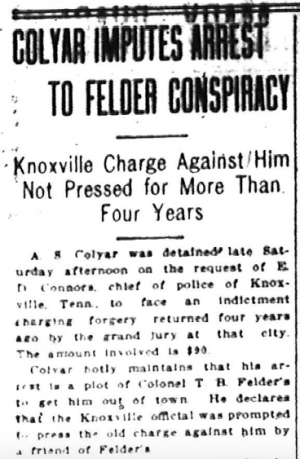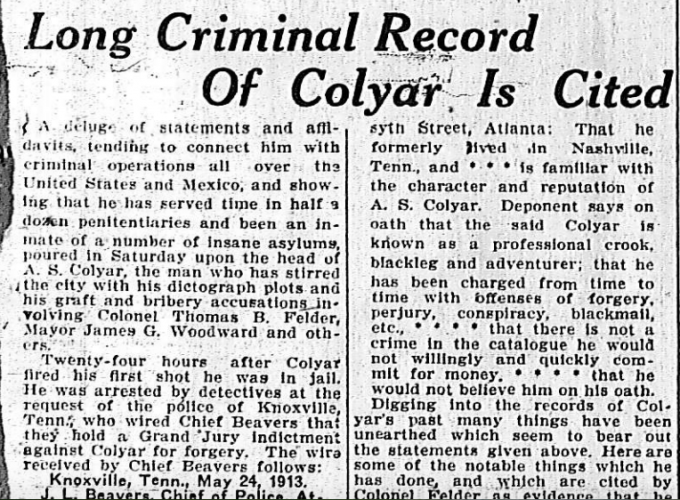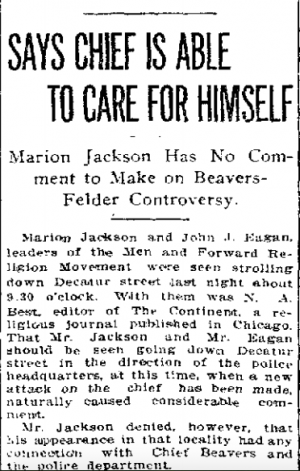Another in our series of new transcriptions of contemporary articles on the Leo Frank case.
Atlanta Constitution
Sunday, May 25th, 1913
Going to A. S. Colyar’s room in Williams House No. 2, on Forsyth street, Wednesday afternoon to make efforts to get information of alleged grafting on the part of Chief of Police Beavers and Chief Lanford, Mayor James G. Woodward walked into as neat a trap as was ever devised. The same dictagraph which was alleged to take down the statements of Colonel T. B. Felder, is said to have been working while the mayor of Atlanta was in conference with E. O. Miles, a private detective; Febuary, Chief of detectives Lanford’s clerk, and A. S. Colyar.
The mayor admits frankly he was there, but says he offered no money, but that he would subscribe to a fund to unearth graft in any city department; and also said that his visit had nothing whatever to do with the Phagan case.
“These parties told me they had evidence of the corruptness of Beavers and Lanford. I wanted to see what they had,” he is quoted as saying.
Part of the conversation, as alleged to have been taken down by George M. Gentry, nephew of the president of Southern Bell Telephone company, dealt with the early arrival of Miles, who discussed the Phagan case with Colyar.
After Mayor Woodward arrived in the room, Colyar stated that Febuary had the goods on certain members of the police and detective department. There was some discussion about the right of the police to arrest anyone who could get such evidence. Mayor Woodward staying that he didn’t understand how such an informer could be thrown in jail. Continue Reading →

